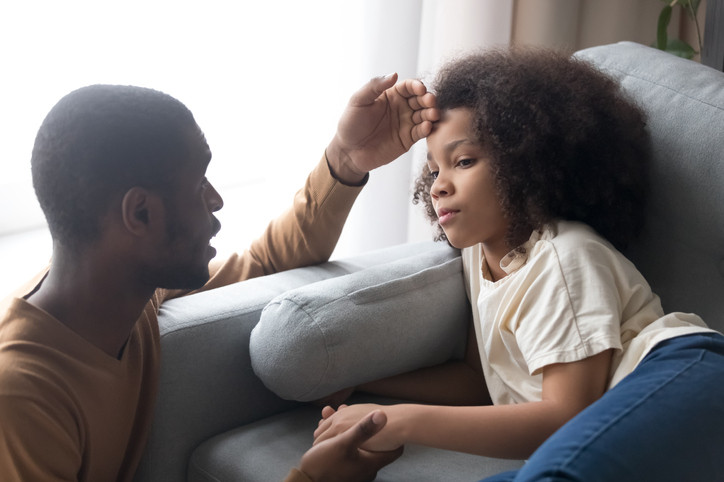Recurrent headaches in children: What to know and do

Headaches are very common in children. By the time they reach 18, essentially all kids will have had at least one. Most children get them rarely, usually with an illness. But some children get recurrent headaches. About 5% of kindergartners experience this problem, and the percentage goes up as children get older. By the time they get to the end of high school, that number is up to more than 25%.
Recurrent headaches often run in families. There are two types: primary and secondary. Primary headaches come from the nervous system itself, while secondary headaches are caused by something affecting the nervous system, such as an illness.
Migraines and tension headaches
Migraine and tension headaches are the two most common primary headaches in children.
- Migraines cause pain that a child can point to, usually on both sides of the head. It is throbbing and gets worse with activity. Light and noise can make it worse, and children will sometimes have nausea or vomiting. About 10% of children also have an “aura,” meaning that before the headache they have changes in their vision, like blind spots or sparkling lights, or other things like weakness or tingling.
- Tension headaches tend to be all over and less easy to point to. They don’t throb like migraines or get worse with activity. As with migraines, light and noise can make them worse. However, they don’t cause nausea or vomiting, and there isn’t an aura.
What causes secondary headaches?
The most common cause of secondary headaches is illness, like a bad cold or the flu. Other common causes include bumps to the head (from a little knock to a concussion) and side effects of medicines. Kids can also get headaches from taking over-the-counter pain medications too often — more than three or so times a week — which many parents don’t realize. There are more serious causes of secondary headaches, like high blood pressure, tumors, or increased pressure on or bleeding in the brain, but those are very rare.
What should you do about recurrent headaches?
If your child is having recurrent headaches, call your doctor. Even though it’s likely to be nothing serious, your doctor should know about it. Keep a diary of the headaches: what they are like, any symptoms that happened at the same time, the medicines you gave, and what was going on that day. This will help you and your doctor figure out what to do.
Acetaminophen and ibuprofen can help in the moment, but don’t immediately reach for medicine unless your child is very uncomfortable. Not only can giving pain relievers too frequently make things worse, but much of the time medicine isn’t needed. Have your child rest, perhaps with a cool cloth over their eyes. Get them something to drink (water is fine) and something light to eat if they haven’t eaten in a while.
Preventing recurrent headaches
To help prevent recurrent headaches, make sure your child
- gets enough sleep (eight to 10 hours a night)
- gets daily exercise
- eats and drinks regularly throughout the day.
Stress can cause headaches, so be mindful of your child’s stress level. Keep lines of communication open, and make sure that your child has downtime every day to relax and do whatever makes them happy.
To learn about when headaches in children can be a sign of a problem, check out 8 things to watch for when your child has a headache.
About the Author

Claire McCarthy, MD, Former Senior Faculty Editor, Harvard Health Publishing
Disclaimer:
As a service to our readers, Harvard Health Publishing provides access to our library of archived content. Please note the date of last review or update on all articles.
No content on this site, regardless of date, should ever be used as a substitute for direct medical advice from your doctor or other qualified clinician.















